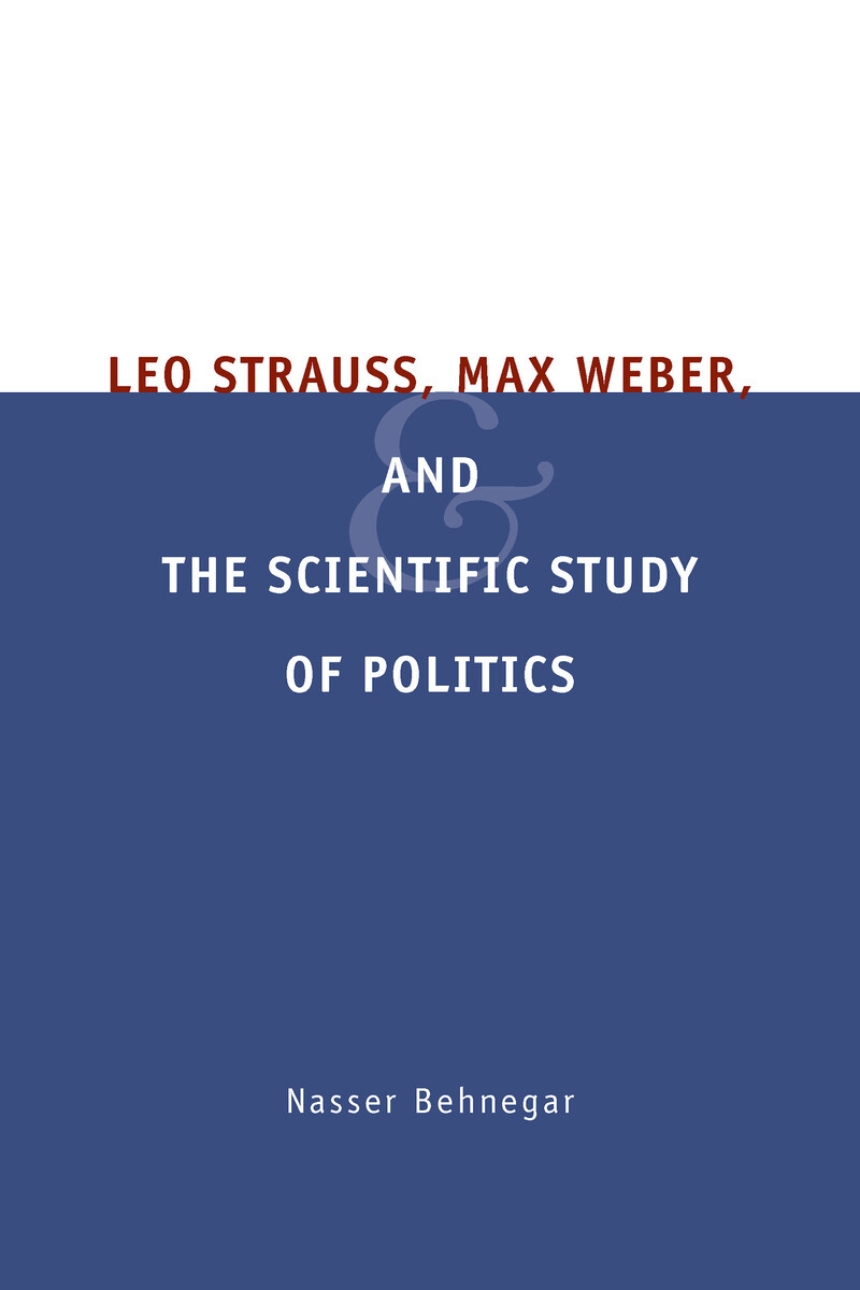Leo Strauss, Max Weber, and the Scientific Study of Politics
Can politics be studied scientifically, and if so, how? Assuming it is impossible to justify values by human reason alone, social science has come to consider an unreflective relativism the only viable basis, not only for its own operations, but for liberal societies more generally. Although the experience of the sixties has made social scientists more sensitive to the importance of values, it has not led to a fundamental reexamination of value relativism, which remains the basis of contemporary social science. Almost three decades after Leo Strauss’s death, Nasser Behnegar offers the first sustained exposition of what Strauss was best known for: his radical critique of contemporary social science, and particularly of political science.
Behnegar’s impressive book argues that Strauss was not against the scientific study of politics, but he did reject the idea that it could be built upon political science’s unexamined assumption of the distinction between facts and values. Max Weber was, for Strauss, the most profound exponent of values relativism in social science, and Behnegar’s explication artfully illuminates Strauss’s critique of Weber’s belief in the ultimate insolubility of all value conflicts.
Strauss’s polemic against contemporary political science was meant to make clear the contradiction between its claim of value-free premises and its commitment to democratic principles. As Behnegar ultimately shows, values—the ethical component lacking in a contemporary social science—are essential to Strauss’s project of constructing a genuinely scientific study of politics.
Behnegar’s impressive book argues that Strauss was not against the scientific study of politics, but he did reject the idea that it could be built upon political science’s unexamined assumption of the distinction between facts and values. Max Weber was, for Strauss, the most profound exponent of values relativism in social science, and Behnegar’s explication artfully illuminates Strauss’s critique of Weber’s belief in the ultimate insolubility of all value conflicts.
Strauss’s polemic against contemporary political science was meant to make clear the contradiction between its claim of value-free premises and its commitment to democratic principles. As Behnegar ultimately shows, values—the ethical component lacking in a contemporary social science—are essential to Strauss’s project of constructing a genuinely scientific study of politics.
216 pages | 6 x 9 | © 2002
Philosophy: Philosophy of Society
Political Science: Political and Social Theory
Reviews
Table of Contents
Acknowledgments
List of Abbreviations
Introduction
Part I
Chapter 1: Political Science in the Age of Relativism
Chapter 2: Political Philosophy in the Age of Relativism
Part II
Chapter 3: The Fact-Value Distinction and Nihilism
Chapter 4: The Fact-Value Distinction and Social Science as a Theoretical Pursuit
Chapter 5: The Problem of Social Science
Part III
Chapter 6: Strauss’s Polemic Against the New Political Science
Chapter 7: The New Political Science
Chapter 8: The Revolt Against the Old Political Science
Chapter 9: The New Political Science and Liberal Democracy
Concluding Remarks
Works Cited
Index
List of Abbreviations
Introduction
Part I
Chapter 1: Political Science in the Age of Relativism
Chapter 2: Political Philosophy in the Age of Relativism
Part II
Chapter 3: The Fact-Value Distinction and Nihilism
Chapter 4: The Fact-Value Distinction and Social Science as a Theoretical Pursuit
Chapter 5: The Problem of Social Science
Part III
Chapter 6: Strauss’s Polemic Against the New Political Science
Chapter 7: The New Political Science
Chapter 8: The Revolt Against the Old Political Science
Chapter 9: The New Political Science and Liberal Democracy
Concluding Remarks
Works Cited
Index
